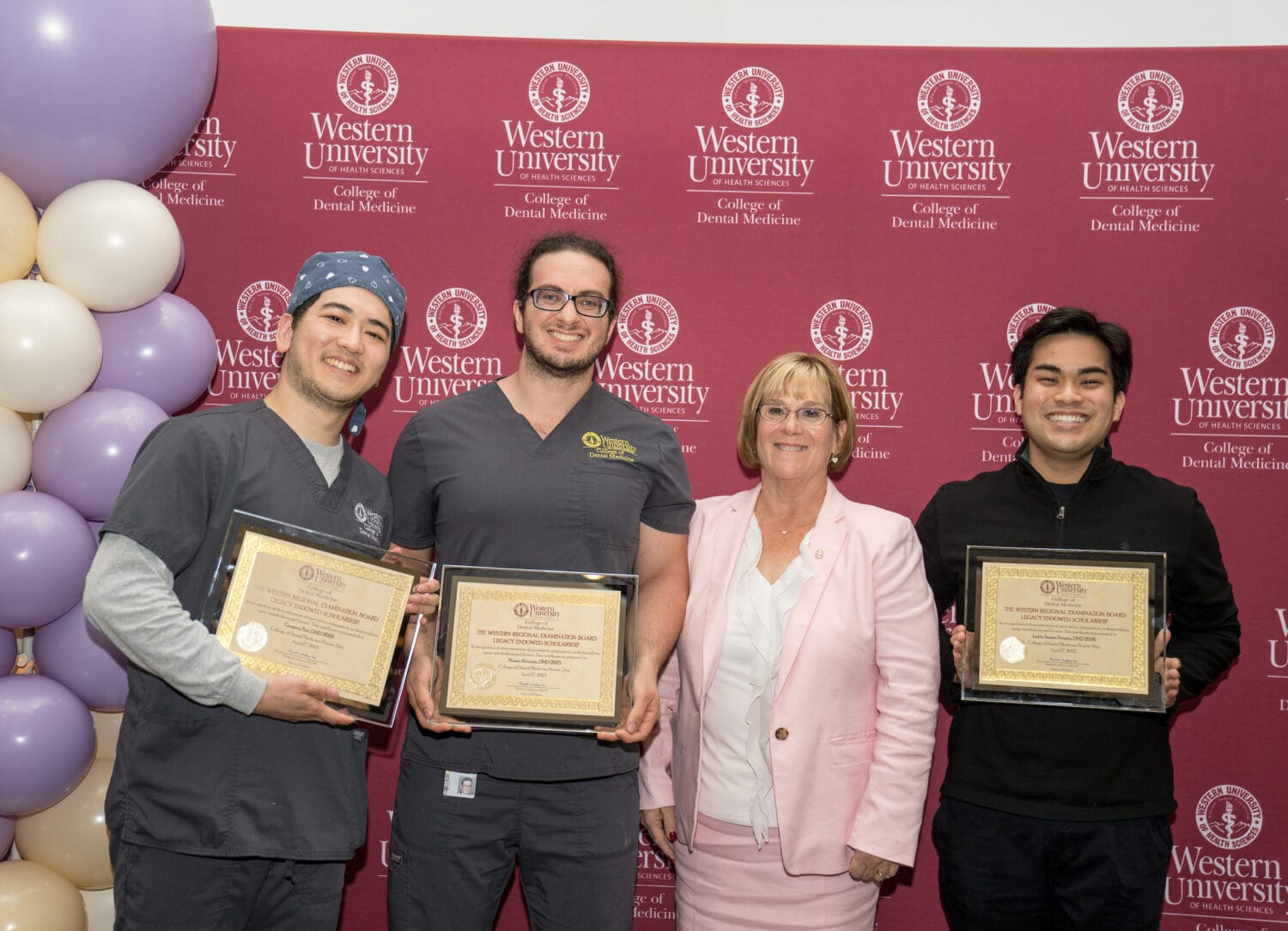Data shows Pomona Health Career Ladder improves children, family's lives
Compared to a matched sample of peers, students attending the Pomona Health Career Ladder (PHCL) during the 2012-13 academic year showed significantly better public school attendance, higher math scores on CST standardized tests, fewer and less severe disciplinary problems, and slightly higher GPAs.
Results also revealed better scores than expected for PHCL students (compared to peers) on the English Language Arts (ELA) exam by the end of the academic year. The data was prepared by WesternU’s Office of Institutional Research & Effectiveness (IRE).
Each academic year, Pomona Unified School District (PUSD) students at the middle and high school level attend PHCL’s six monthly Saturday workshops at Western University of Health Sciences in Pomona, Calif. More than 80 medical, dental, pharmacy and veterinary student volunteers lead the workshops from WesternU, along with undergraduate students from Cal Poly Pomona and Cal Sate Fullerton. Career Ladder began in the 2008-09 academic year.
Carmen Gomez, mother of Marco Gomez, who’s in his first year in PHCL and is a seventh-grader at Palomares Academy of Health Sciences (PAHS), said Career Ladder has helped her son do better in school by having him interact more, prompting him to be more interested and open to answering questions in school.
Carmen, who graduated from nearby Garey High School, says it’s important to her that her son continues his education beyond high school, which she did not.
About 55 percent of the parents whose children attend PHCL have completed high school only or have not graduated high school, according to program data based on the treatment math group. Between 11 and 16 percent are college graduates.
Elizabeth Rega, PhD, associate vice provost for academic development in the Office of Academic Affairs at WesternU, said that attendance and discipline directly reflect parents’ efforts toward improving the lives of their children and the community.
“Partnering with parents is critical to helping young students succeed, just as partnering with patients is critical to achieving good health.” Rega said. “Despite economic, educational and language obstacles, these parents have dedicated themselves to a better career for their children. WesternU is here in the community as a resource for education and for health care for the whole patient.”
The IRE analyzed a series of t-tests to compare the difference between PHCL students (treatment group) and PUSD students (non-treatment group).
CST (California Standards Test) for ELA (English Language Arts) and Math test scores were matched between groups by finding PUSD students who has similar test scores. Several PUSD student matches were found for each PHCL student. Using a random number generator, one PUSD match was randomly selected for each PHCL person.
The next PHCL Saturday workshop will be on March 15.



